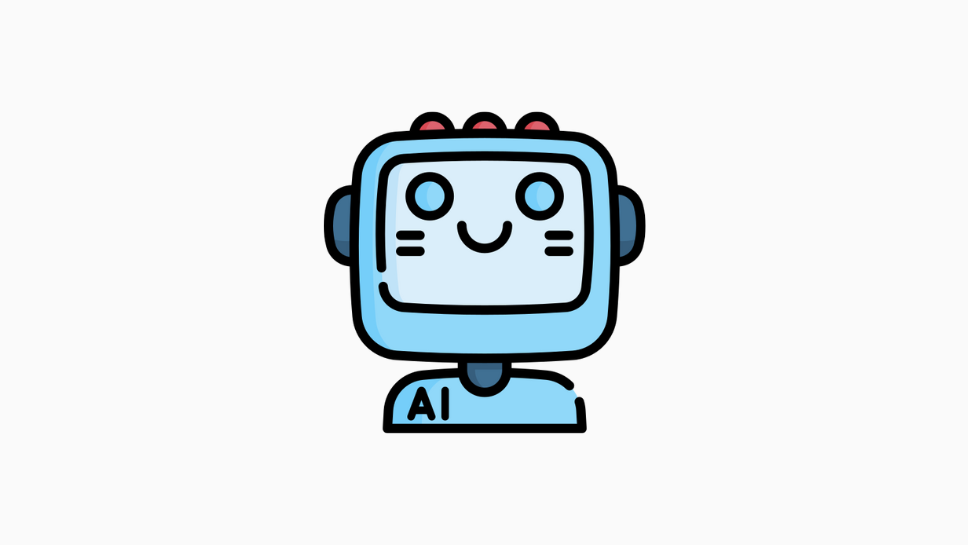Table of Contents
Using artificial intelligence, I now do 5 hours of work in about 15 minutes.
Whether it’s writing emails, coming up with creative ideas, summarising stuff I watch, read, and listen to, or doing super efficient research into things that interests me, there are AI tools out there to make all this stuff literally 10 times easier for myself.
I guess AI is basically like having a super-intelligent robot sidekick that can help me with anything I need, and it’s only getting more powerful.
So let me show you the 6 AI tools I use right now to level up my productivity in everyday life.
🤖 ChatGPT
This is one of the most exciting pieces of AI tech out there, which everyone seems to be talking about at the moment.
It’s essentially just a large language model developed by OpenAi, that’s been trained on a ton of data from across the internet. It’s not really worth getting bogged down in the details, but, in short, it lets us automate pretty much any taks that involves natural language.
For example, I can ask ChatGPT to provide a list of potential title ideas for this article:
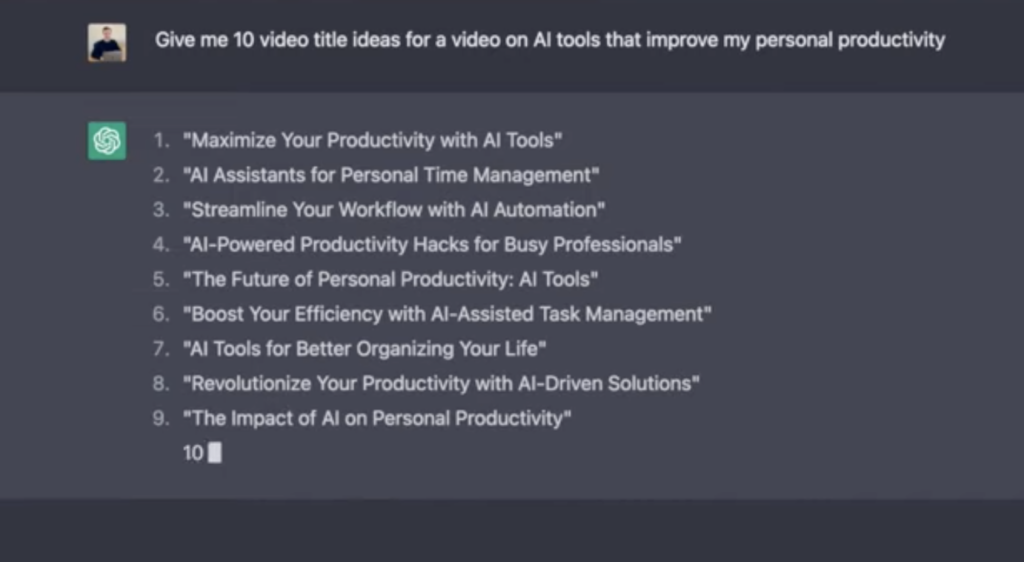
Or, I could ask ChatGPT something quite broad, such as ‘How can I use AI to improve personal productivity?’, and it will spit out some suggestions of stuff I could write about in this article:
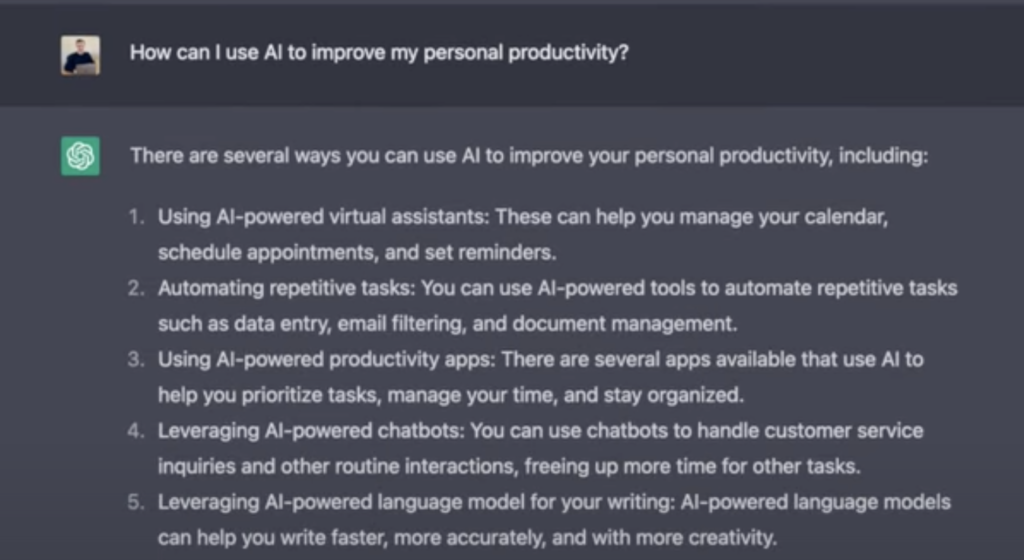
It’s like having your own personal assistant 24 hours of the day. It’s fantastic!
In fact, I like ChatGPT so much I now use the chrome extension Merlin, so I can more quickly and seamlessly interact and use ChatGPT as I browse the web.

For example, if I’m on a random webpage and there’s a bunch of text I can’t be bothered to read, I can just copy it and ask Merlin to quickly summarise it for me and tell me the key details. If it’s something that sounds cool or interesting, I’ll probably go ahead and read the text properly, but Merlin saves me from having to read stuff that’s generic or boring and do all the heavy-lifting myself.
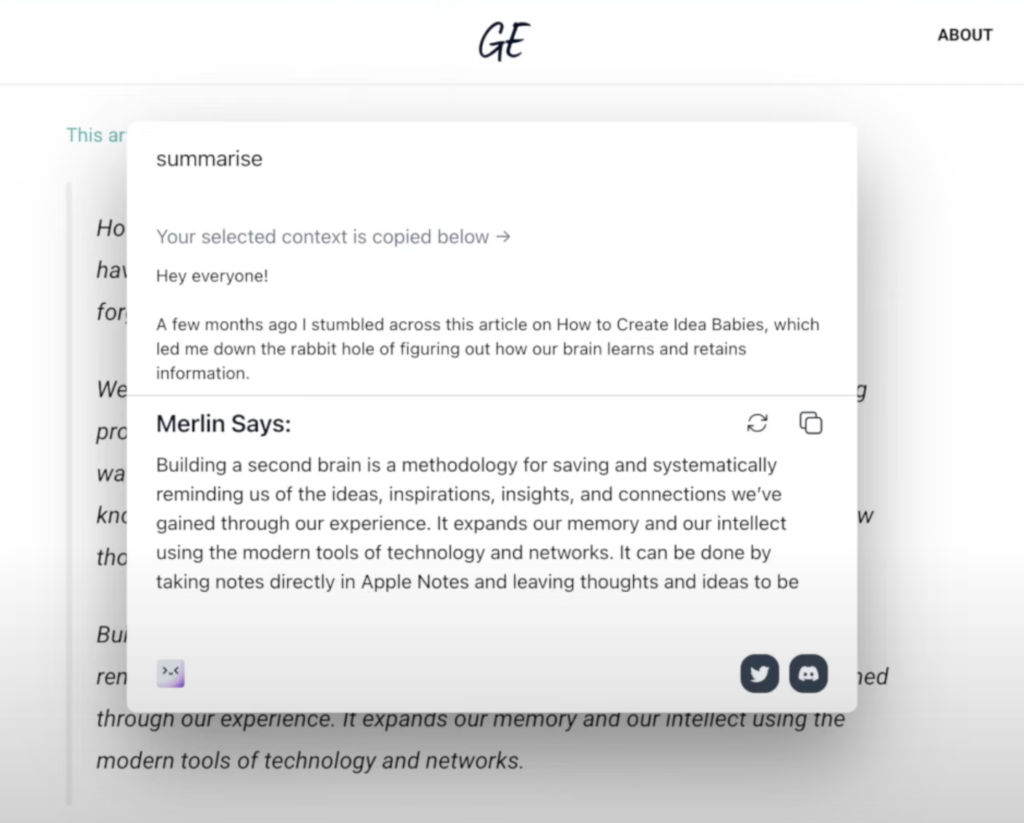
By the way, if you like the sound of ChatGPT feel free to download my FREE 30 page cheat sheet below so you can get the most out of it as your AI assistant:
👻 Ghostwrite
I get a bunch of emails everyday and a lot of these emails ask for pretty similar things. Like, asking for study advice or asking to jump on a Zoom call or other stuff like that. And replying to each of these emails one by one is pretty repetitive and time consuming, so I wanted a faster way to get back to everyone.
This is where Ghostwrite comes in.
All we need to do is download the chrome extension and every time we write an email it will pop up asking if we want to write the email using AI.

For example, I recently got an email asking for tips on how to study when you feel tired. Now, the old school way of answering this email would be to type everything out by hand, like this:
“Dear Donald, thank you very much for the email. I’d be more than happy to help you out. There are a few things that I’d recommend and that help me when I’m feeling tired etc. etc.”
This is super slow.
So, the better way to do this is to literally just tell Ghostwrite an outline of how you’d reply. Something like: “Reply recommending drinking enough water, studying in a brightly lit room, not getting too comfortable, and going for a walk.”
Ghostwrite will then give you a really quick draft of the email.
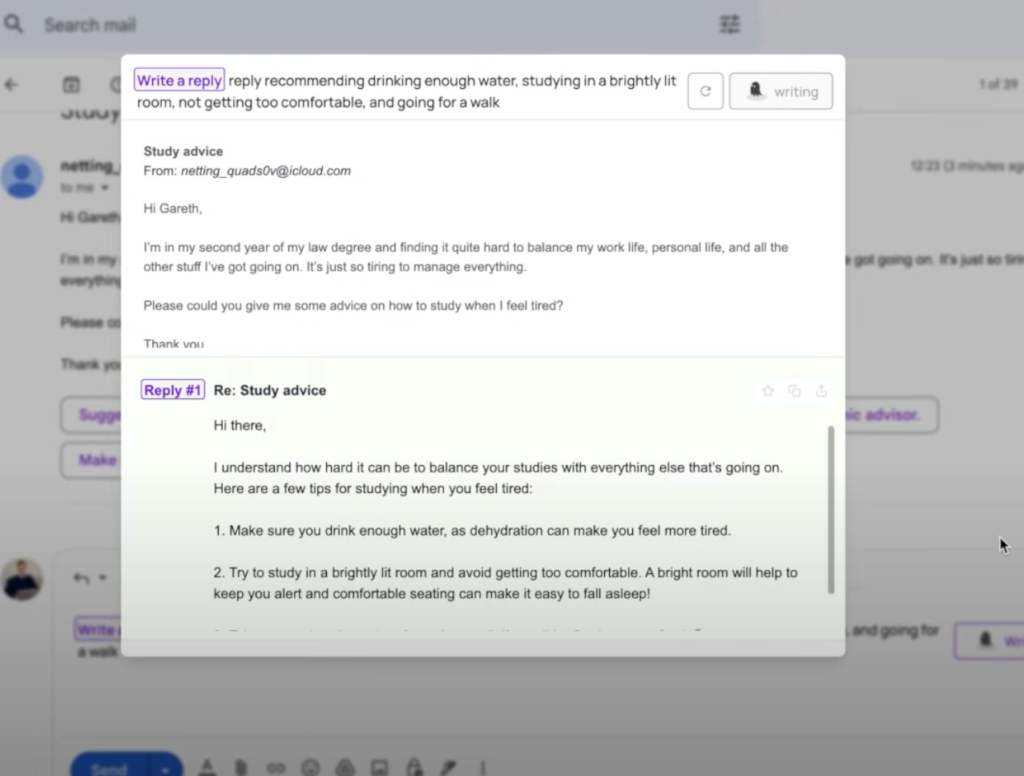
It will probably need some tweaking from here, but you can hopefully see that this is an absolute game-changer for email productivity.
🔬 Consensus
The idea here is that we can use AI to help us to do our research for us. Like, it can literally search through a database of millions of scientific papers or books and find all the relevant information we need.
For example, if I’m making a video or writing an essay or just curious about how much sleep an adult should get every night, I can go to Consensus and just type that in.
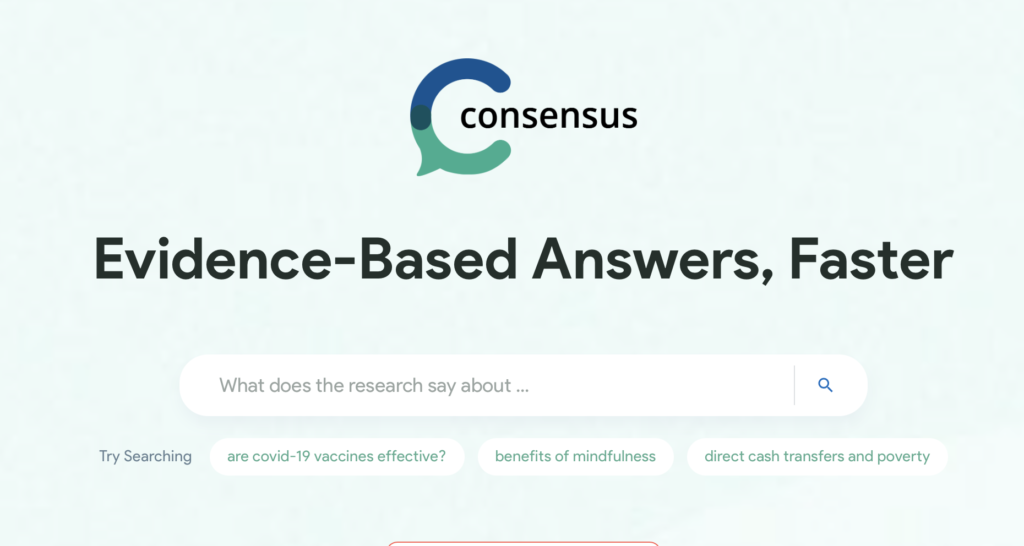
From there, I’m given a bunch of sentences extracted from scientific papers about the amount of sleep I ought to get, fully based on evidence. Then, if the paper or extract looks kinda interesting, I can click on the result to find out more information about that specific paper.
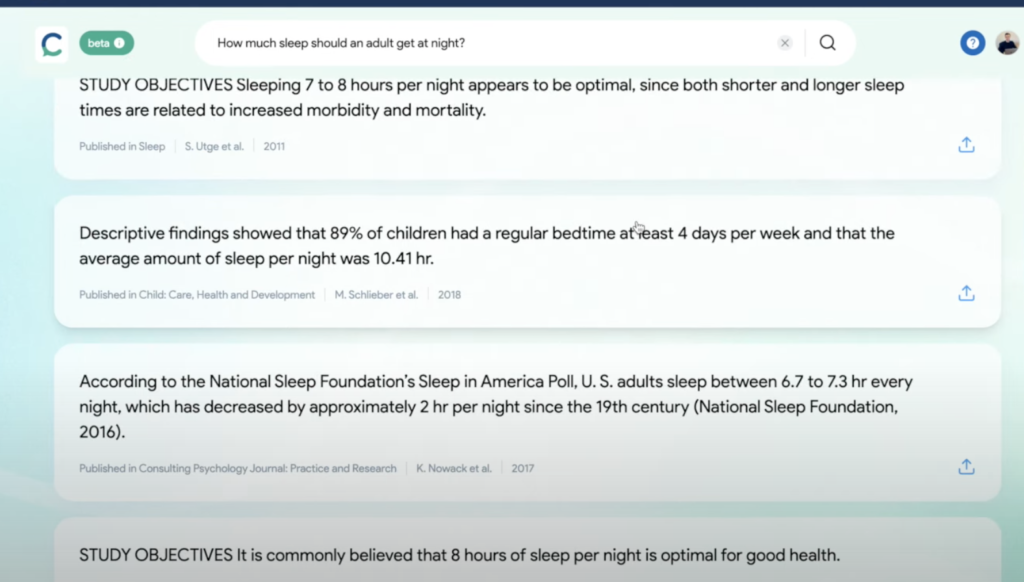
Sometimes, I’ll also decide that I want to find some extracts from interesting books on the same topic too. So, this is when I’ll hop over to TalkToBooks, which works in a very similar way.
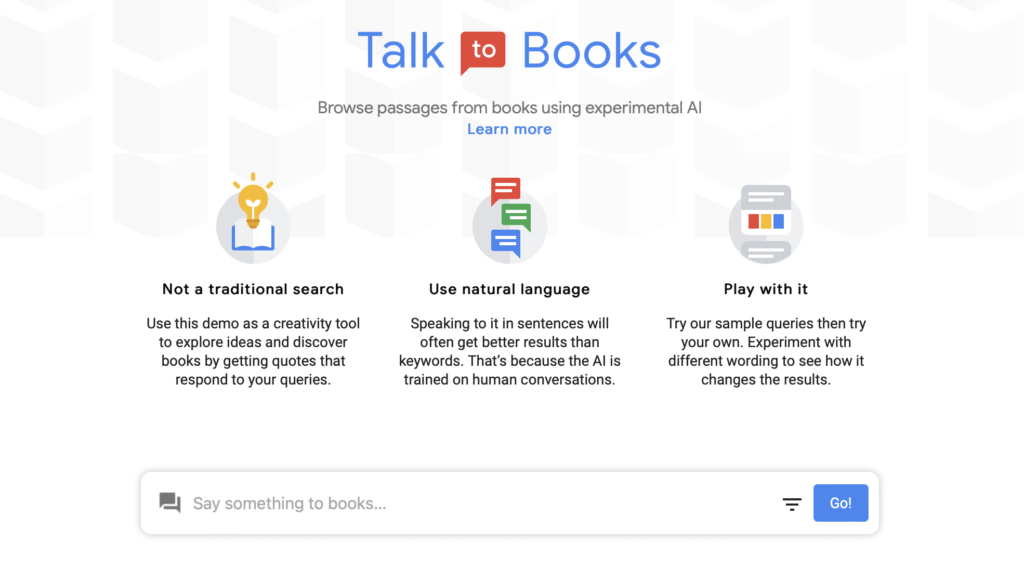
For example, if I type in ‘how much sleep does an adult need?’, I’ll be given a bunch of quotes from different books that hopefully answers that query.
So, by using Consensus and TalkToBooks I can do pretty thorough research into something without having to go digging too far for all the sources myself.
🎙️ Snipd
I’ve been consuming a fair amount of content online recently as there’s so much great stuff to learn from videos and podcasts. But I wanted a way to make this process quicker and more effective to capture the genuinely useful information that resonates with me.
This was when I stumbled across Snipd.
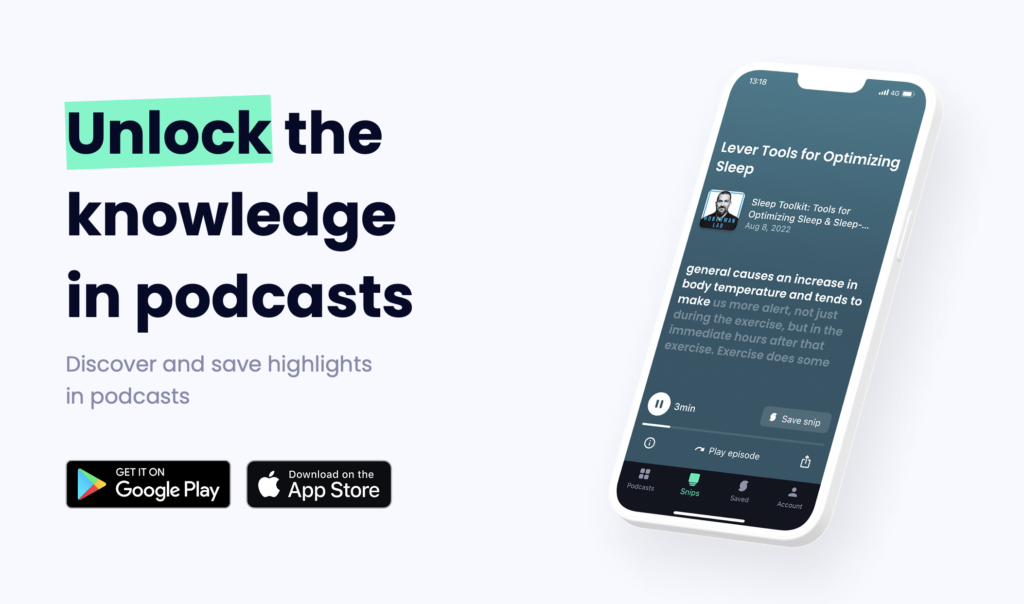
In short, Snipd is a phone app that uses AI to make listening to podcasts a really effective way to learn stuff. By turning the podcast into a bunch of small ‘chapters’ I can quickly find what stuff is actually worth listening to and then, once I’ve found something interesting, it can turn that ‘chapter’ into a short summary with the key takeaways. I’ll then chuck these takeaways straight into Apple Notes to save them and add a couple of my own thoughts to flesh them out.
This process used to take a good 30 to 45 minutes per podcast, depending on its length. But I can pretty much summarise every podcast in about 5 to 10 minutes now.
A similar AI tool I’ve been enjoying recently is summarize.tech. This does almost the same thing but for YouTube videos. So, if there’s a long video that looks pretty interesting, but I don’t have time to listen to it all I’ll just drop the URL into summarize.tech and it will give me a breakdown of the key points and the timestamps so I can jump in wherever I want.
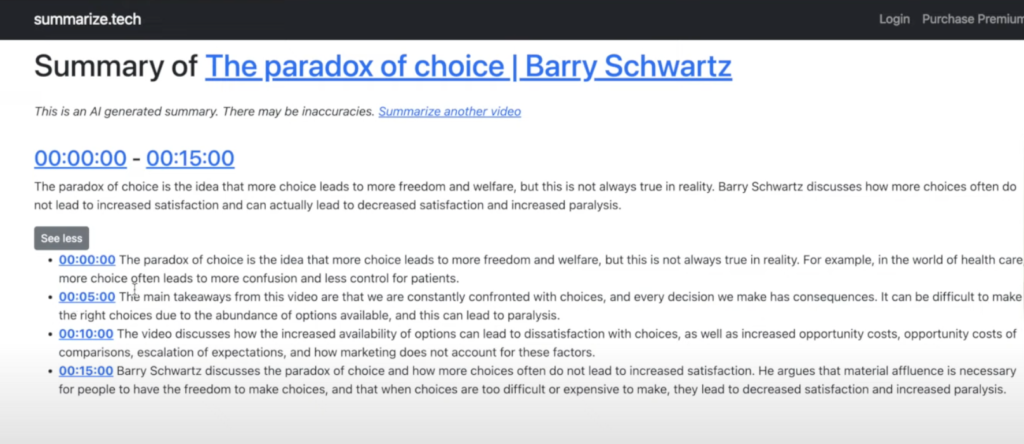
I literally save myself so much time from these two AI tools alone.
✍️ Copy.ai
Now, there are similarities between this and ChatGPT, but I turn to copy.ai for any basic copywriting that I need to do because it’s custom built for the job.
For example, I recently used it to help inspire some copy on my website that I’m looking to update. So I was playing around with generating different hero text, calls to action, and other landing page copy. I also tried to nail my YouTube branding by asking copy.ai to help me define my brand mission and value proposition, and came up with some half decent suggestions.
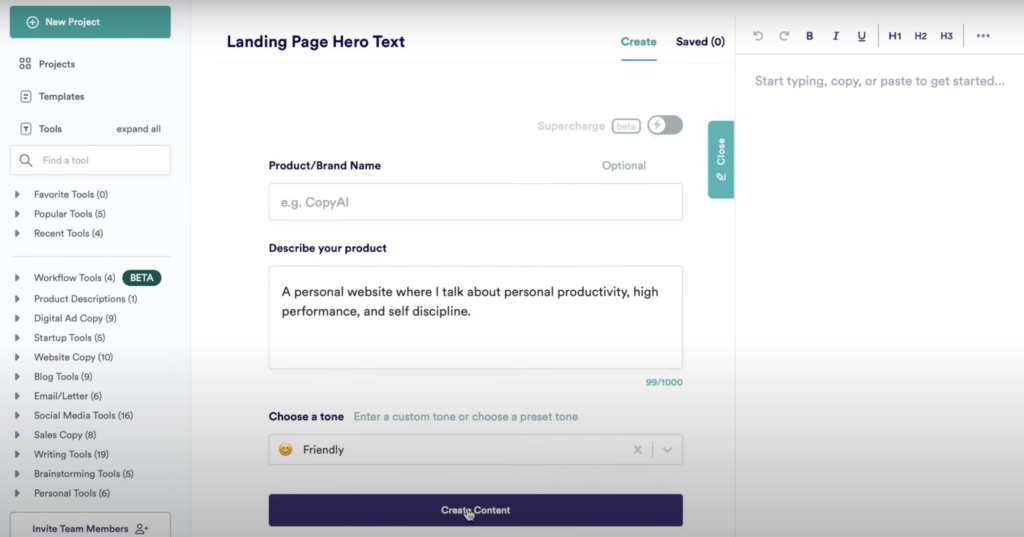
It’s probably not going to give us anything that’s perfect, but it does a solid job at being a source of inspiration for what you want to write!
🖼️ Midjourney
Honestly, Midjourney is probably the least useful for productivity in the list, but it’s pretty good for inspiring creative thinking and idea generation.
It’s basically a tool that generates art using AI, in a similar way to Open AI’s DALL-E 2.
Like, lets say I want to get some ideas for a logo I can just chuck a creative thought about what sort of image I’d like as my logo, and Midjourney will do a bit of thinking before giving me a suggestion or two about what that image could look like.

It’s a lot of fun and if you’re into art and design then I’m sure there are plenty of different use cases you can think of 🙂

